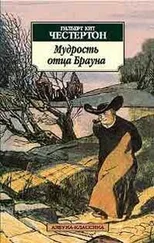Гилберт Честертон - Robert Browning
Здесь есть возможность читать онлайн «Гилберт Честертон - Robert Browning» весь текст электронной книги совершенно бесплатно (целиком полную версию без сокращений). В некоторых случаях можно слушать аудио, скачать через торрент в формате fb2 и присутствует краткое содержание. Год выпуска: 2014, Издательство: epubBooks Classics, Жанр: Биографии и Мемуары, на английском языке. Описание произведения, (предисловие) а так же отзывы посетителей доступны на портале библиотеки ЛибКат.
- Название:Robert Browning
- Автор:
- Издательство:epubBooks Classics
- Жанр:
- Год:2014
- ISBN:нет данных
- Рейтинг книги:5 / 5. Голосов: 1
-
Избранное:Добавить в избранное
- Отзывы:
-
Ваша оценка:
- 100
- 1
- 2
- 3
- 4
- 5
Robert Browning: краткое содержание, описание и аннотация
Предлагаем к чтению аннотацию, описание, краткое содержание или предисловие (зависит от того, что написал сам автор книги «Robert Browning»). Если вы не нашли необходимую информацию о книге — напишите в комментариях, мы постараемся отыскать её.
Robert Browning — читать онлайн бесплатно полную книгу (весь текст) целиком
Ниже представлен текст книги, разбитый по страницам. Система сохранения места последней прочитанной страницы, позволяет с удобством читать онлайн бесплатно книгу «Robert Browning», без необходимости каждый раз заново искать на чём Вы остановились. Поставьте закладку, и сможете в любой момент перейти на страницу, на которой закончили чтение.
Интервал:
Закладка:
Browning was, as most of his upholders and all his opponents say, an optimist. His theory, that man's sense of his own imperfection implies a design of perfection, is a very good argument for optimism. His theory that man's knowledge of and desire for self–sacrifice implies God's knowledge of and desire for self–sacrifice is another very good argument for optimism. But any one will make the deepest and blackest and most incurable mistake about Browning who imagines that his optimism was founded on any arguments for optimism. Because he had a strong intellect, because he had a strong power of conviction, he conceived and developed and asserted these doctrines of the incompleteness of Man and the sacrifice of Omnipotence. But these doctrines were the symptoms of his optimism, they were not its origin. It is surely obvious that no one can be argued into optimism since no one can be argued into happiness. Browning's optimism was not founded on opinions which were the work of Browning, but on life which was the work of God. One of Browning's most celebrated biographers has said that something of Browning's theology must be put down to his possession of a good digestion. The remark was, of course, like all remarks touching the tragic subject of digestion, intended to be funny and to convey some kind of doubt or diminution touching the value of Browning's faith. But if we examine the matter with somewhat greater care we shall see that it is indeed a thorough compliment to that faith. Nobody, strictly speaking, is happier on account of his digestion. He is happy because he is so constituted as to forget all about it. Nobody really is convulsed with delight at the thought of the ingenious machinery which he possesses inside him; the thing which delights him is simply the full possession of his own human body. I cannot in the least understand why a good digestion—that is, a good body—should not be held to be as mystic a benefit as a sunset or the first flower of spring. But there is about digestion this peculiarity throwing a great light on human pessimism, that it is one of the many things which we never speak of as existing until they go wrong. We should think it ridiculous to speak of a man as suffering from his boots if we meant that he had really no boots. But we do speak of a man suffering from digestion when we mean that he suffers from a lack of digestion. In the same way we speak of a man suffering from nerves when we mean that his nerves are more inefficient than any one else's nerves. If any one wishes to see how grossly language can degenerate, he need only compare the old optimistic use of the word nervous, which we employ in speaking of a nervous grip, with the new pessimistic use of the word, which we employ in speaking of a nervous manner. And as digestion is a good thing which sometimes goes wrong, as nerves are good things which sometimes go wrong, so existence itself in the eyes of Browning and all the great optimists is a good thing which sometimes goes wrong. He held himself as free to draw his inspiration from the gift of good health as from the gift of learning or the gift of fellowship. But he held that such gifts were in life innumerable and varied, and that every man, or at least almost every man, possessed some window looking out on this essential excellence of things.
Browning's optimism then, since we must continue to use this somewhat inadequate word, was a result of experience—experience which is for some mysterious reason generally understood in the sense of sad or disillusioning experience. An old gentleman rebuking a little boy for eating apples in a tree is in the common conception the type of experience. If he really wished to be a type of experience he would climb up the tree himself and proceed to experience the apples. Browning's faith was founded upon joyful experience, not in the sense that he selected his joyful experiences and ignored his painful ones, but in the sense that his joyful experiences selected themselves and stood out in his memory by virtue of their own extraordinary intensity of colour. He did not use experience in that mean and pompous sense in which it is used by the worldling advanced in years. He rather used it in that healthier and more joyful sense in which it is used at revivalist meetings. In the Salvation Army a man's experiences mean his experiences of the mercy of God, and to Browning the meaning was much the same. But the revivalists' confessions deal mostly with experiences of prayer and praise; Browning's dealt pre–eminently with what may be called his own subject, the experiences of love.
And this quality of Browning's optimism, the quality of detail, is also a very typical quality. Browning's optimism is of that ultimate and unshakeable order that is founded upon the absolute sight, and sound, and smell, and handling of things. If a man had gone up to Browning and asked him with all the solemnity of the eccentric, "Do you think life is worth living?" it is interesting to conjecture what his answer might have been. If he had been for the moment under the influence of the orthodox rationalistic deism of the theologian he would have said, "Existence is justified by its manifest design, its manifest adaptation of means to ends," or, in other words, "Existence is justified by its completeness." If, on the other hand, he had been influenced by his own serious intellectual theories he would have said, "Existence is justified by its air of growth and doubtfulness," or, in other words, "Existence is justified by its incompleteness." But if he had not been influenced in his answer either by the accepted opinions, or by his own opinions, but had simply answered the question "Is life worth living?" with the real, vital answer that awaited it in his own soul, he would have said as likely as not, "Crimson toadstools in Hampshire." Some plain, glowing picture of this sort left on his mind would be his real verdict on what the universe had meant to him. To his traditions hope was traced to order, to his speculations hope was traced to disorder. But to Browning himself hope was traced to something like red toadstools. His mysticism was not of that idle and wordy type which believes that a flower is symbolical of life; it was rather of that deep and eternal type which believes that life, a mere abstraction, is symbolical of a flower. With him the great concrete experiences which God made always come first; his own deductions and speculations about them always second. And in this point we find the real peculiar inspiration of his very original poems.
One of the very few critics who seem to have got near to the actual secret of Browning's optimism is Mr. Santayana in his most interesting book Interpretations of Poetry and Religion . He, in contradistinction to the vast mass of Browning's admirers, had discovered what was the real root virtue of Browning's poetry; and the curious thing is, that having discovered that root virtue, he thinks it is a vice. He describes the poetry of Browning most truly as the poetry of barbarism, by which he means the poetry which utters the primeval and indivisible emotions. "For the barbarian is the man who regards his passions as their own excuse for being, who does not domesticate them either by understanding their cause, or by conceiving their ideal goal." Whether this be or be not a good definition of the barbarian, it is an excellent and perfect definition of the poet. It might, perhaps, be suggested that barbarians, as a matter of fact, are generally highly traditional and respectable persons who would not put a feather wrong in their head–gear, and who generally have very few feelings and think very little about those they have. It is when we have grown to a greater and more civilised stature that we begin to realise and put to ourselves intellectually the great feelings that sleep in the depths of us. Thus it is that the literature of our day has steadily advanced towards a passionate simplicity, and we become more primeval as the world grows older, until Whitman writes huge and chaotic psalms to express the sensations of a schoolboy out fishing, and Maeterlinck embodies in symbolic dramas the feelings of a child in the dark.
Читать дальшеИнтервал:
Закладка:
Похожие книги на «Robert Browning»
Представляем Вашему вниманию похожие книги на «Robert Browning» списком для выбора. Мы отобрали схожую по названию и смыслу литературу в надежде предоставить читателям больше вариантов отыскать новые, интересные, ещё непрочитанные произведения.
Обсуждение, отзывы о книге «Robert Browning» и просто собственные мнения читателей. Оставьте ваши комментарии, напишите, что Вы думаете о произведении, его смысле или главных героях. Укажите что конкретно понравилось, а что нет, и почему Вы так считаете.










